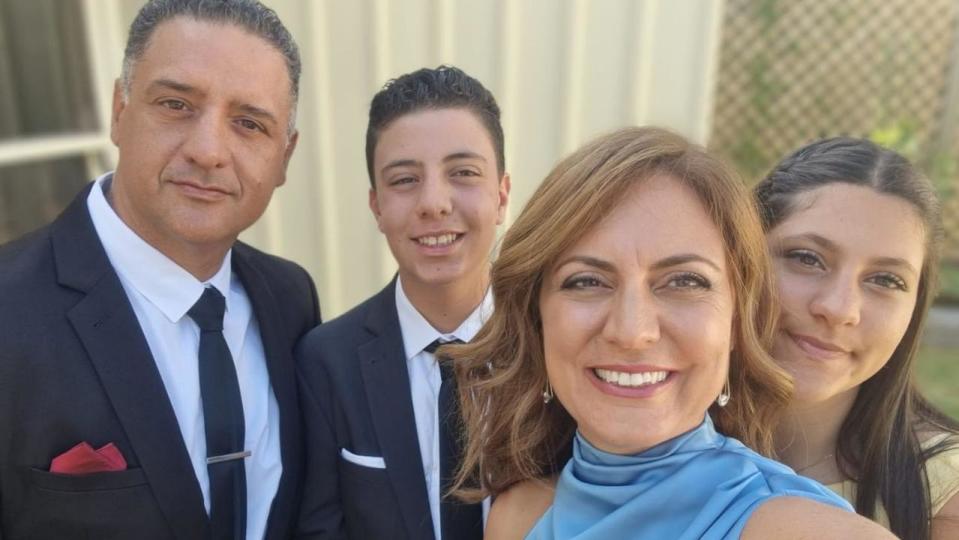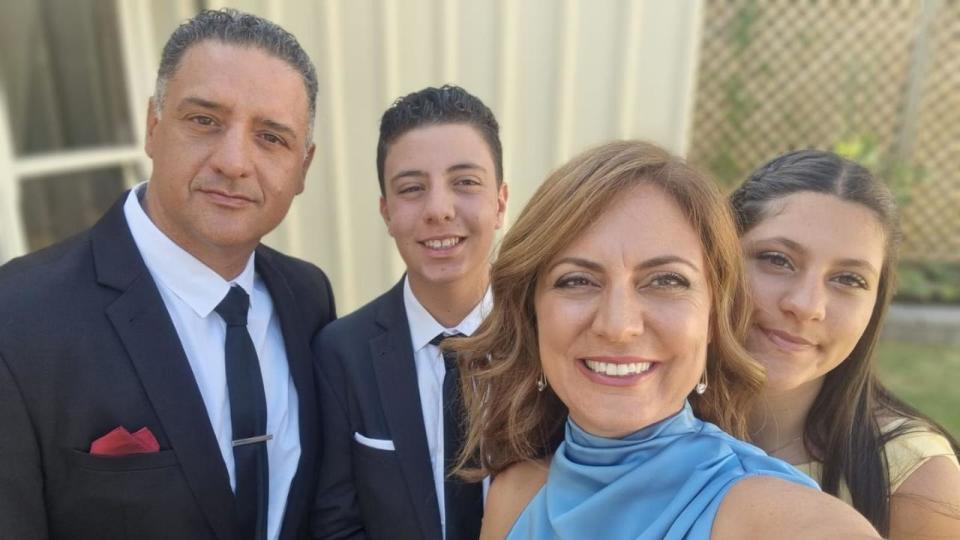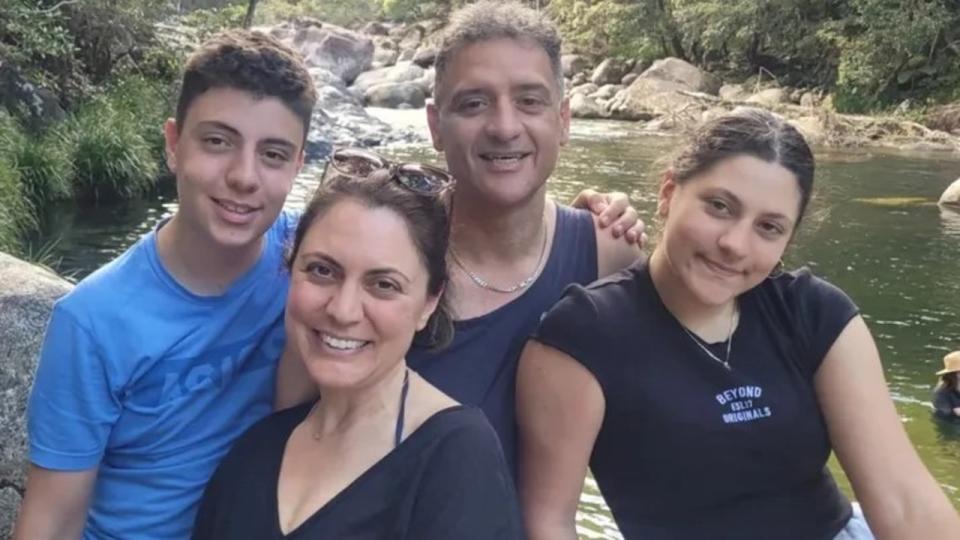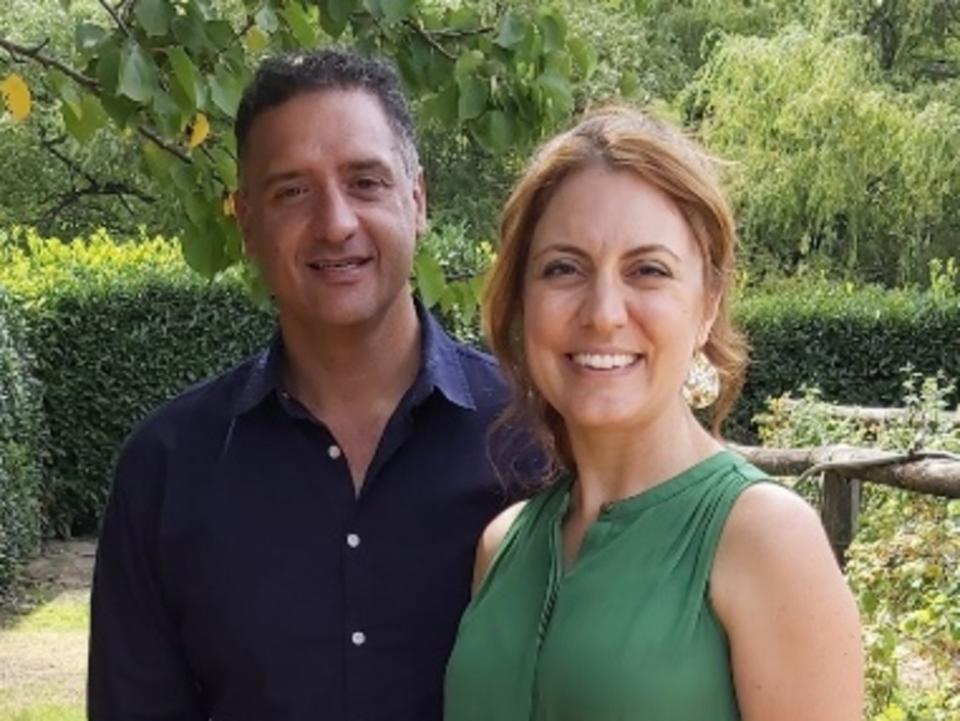$14k bill after dad’s devastating diagnosis

For Sydney dad-of-two Daniel Mazzotta, the first telltale signs something wasn’t quite right were his sudden difficulty with everyday movements like using his knife and fork and doing up his shirt buttons.
After seven months of tests, MRI scans, consults with neurologists, Mr Mazzotta, 51, and his wife Felicia, 45, were given a devastating diagnosis: motor neurone disease (MND), also sometimes referred to as amyotrophic lateral sclerosis or Lou Gehrig’s disease.
The life-changing diagnosis means Mr Mazzotta, a now retired concreter, knows he will gradually lose more of his motor functions, from his ability to walk, to his power and speech.
There is no cure; however, doctors said Mr Mazzotta could attempt to procure edaravone – a drug that can help to slow down MND’s progression.
The caveat? In order to get the crucial medication, the Mazzottas had to travel to Japan and pay $14,000 for a six-month supply.
“It’s just one of those things you have to do with this condition because it progresses so quickly, you just have to do what you can straight away,” Mr Mazzotta said of the difficult decision to go to Japan.

They completed the trip in December after scraping together $20,000 through their life savings, Mr Mazzotta’s income protection, family, and some funds through a GoFundMe.
“Anything that gives you a bit of hope is good. We know it’s not an answer, but if it gives you a little bit of hope and can make you feel a little bit better and for a little bit longer, than you have to,” Mr Mazzotta said.
While edaravone has been approved by the Therapeutic Goods Administration (TGA), its manufacturer Teva Pharma has said it won’t be available in Australia until it is listed on the Pharmaceutical Benefits Scheme (PBS).
Things, however, could soon change, with Teva Pharma Australia looking to the Pharmaceutical Benefits Advisory Committee to have edaravone, or Radicava (its commercial name) listed on the PBS, with an announcement pending for April. Doing so would greatly subsidise the medication and it would be available to purchase domestically.
However, Mr Mazzotta has no time to waste. The average life expectancy for MND patients is about 2½ years; however, some people can live for up to 10 years.
In the five months since his diagnosis, Mr Mazzotta’s condition has noticeably deteriorated.
“My arms are getting weaker. I can pick up things but I can’t hold things. It’s more difficult to get dressed as well,” he said.
“I could wash the dishes four or five months ago, now I can’t really hold the plates up. Eating is also getting harder and harder – it’s just progressing.”

Ms Mazzotta said she was frustrated by the National Disability Insurance Scheme (NDIS).
They’ve yet to receive a response on a funding application despite filing one in November.
During this period, the family are paying for exercise physiology and neuro rehabilitation. As Mr Mazzotta’s symptoms progress, they are also aware they will need to renovate their bathroom and purchase additional items like a wheelchair, which can cost up to $30,000.
“It’s ridiculous. MND patients should have help immediately because of the nature of the progression,” Ms Mazzotta said.
“We don’t have the ability to wait but there’s no fast-tracking our application.”
MND Australia chief executive Clare Sullivan said the financial strain on MND sufferers and their families could be “devastating”.
Anecdotally, the national peak organisation has heard of patients travelling to Japan and America to procure medication; however, there is no way to track to figures around the unregulated practice.
“A struggling family trying to find $14,000 for new medicine is a huge ask, and most people have deteriorated to the point when they’re diagnosed that work becomes very difficult for them, so we know the caring role falls to friends and family, family particularly,” she said.
“So even if you have a two-income family, as you progress, your carer often has to reduce their hours or stop working as well – so the financial impact is devastating.”

While she’s hopeful of a positive resolution later this year, Ms Mazzotta said there was a balance for government agencies to ensure subsidies, like those given by the PBS, are done in a “fair and equitable way” while “ensuring the efficacy of the medicine is there”.
However, for patients desperately chasing more time before their condition deteriorates, the delay was “heartbreaking”, Ms Sullivan acknowledged.
“If the average decline is 2½ years, and for some people the decline can be very, very short, and for hope to be just out of reach, my heart breaks for them,” she said.
Mr Mazzotta’s supply of medication will last the family until late May or early June, with the hope edaravone will become subsidised on the PBS before then.
While the Mazzottas are awaiting the PBAC’s determination with bated breath, if they’re able to come up with $20,000 to go to Japan, they will, but they’re urged an expedited response from the government agency and federal Health Minister Mark Butler.
“When you’re in our situation, you will take even a 1 per cent improvement if it means Dan is going to be OK for a little bit longer,” Ms Mazzotta said.
“It feels like a luxury for people who aren’t in our situation to be delaying the process.”
Mr Mazzotta hopes the government will “just get it done”.
“We’re waiting around and every day counts,” he said.
A spokesperson for the Department of Health and Aged Care said that when “considering a medicine proposed for PBS listing, the PBAC is legally required to take into account the comparative effectiveness and cost‑effectiveness of the medicine compared to other available therapies”.
They said the PBAC will consider a resubmission from Teva Pharmaceuticals to list edaravone on the PBS at its March 2024 meeting, and the outcome will be published on April 26.
“The Government is committed to ensuring Australians have access to affordable medicines by listing medicines on the PBS that have been recommended by the PBAC,” they said.
“Should the PBAC recommend edaravone be listed on the PBS for ALS, the Department of Health and Aged Care will work to finalise arrangements with the Teva Pharmaceuticals and proceed to a PBS listing as quickly as possible, once the necessary documentation has been submitted by the pharmaceutical company.”

 Yahoo Finance
Yahoo Finance 